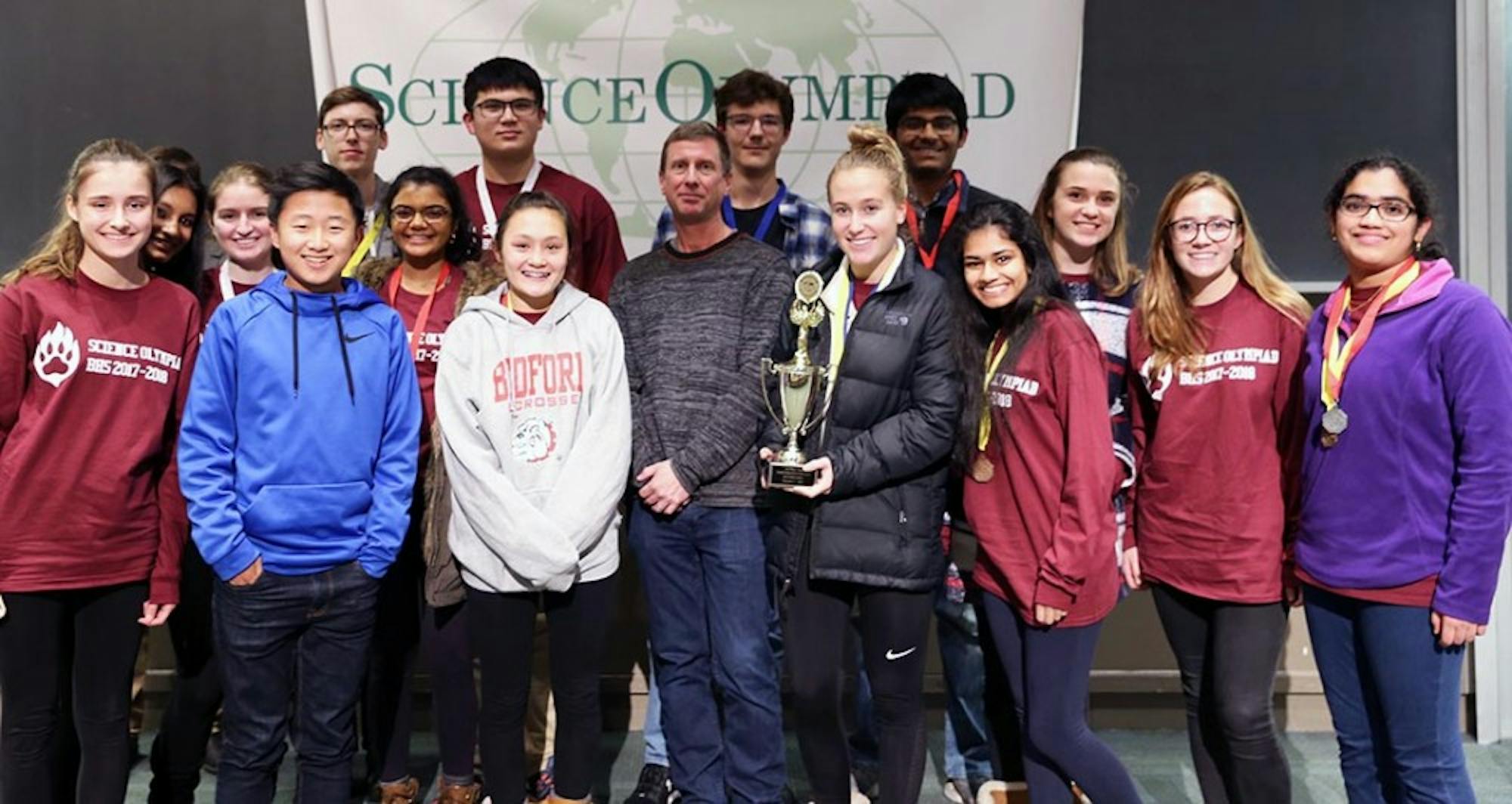This past December, the School of Graduate and Advanced Studies and Lebanon High School hosted an inaugural Science Olympiad invitational tournament at the College. Middle and high schools from the northern New England area sent 20 teams to compete on Dec. 16 in the academic competition in which students participated in various challenges related to science, technology, engineering and mathematics fields.
“[We were] hoping to expand our capacity by collaborating with Dartmouth so that we could make the opportunity [to compete in the northern New England Science Olympiad] available to more teams,” Lebanon High School science teacher and tournament director John Tietjen said. “It also helped lay the groundwork for an annually recurring tournament to be held with a greater infrastructure of support from a greater number of people.”
Students participated in 23 events related to various STEM fields, including life science, earth and space science, physical science, engineering and inquiry and the nature of science. Tietjen said that the events consisted of hands-on engineering projects that students completed in advance of the tournament, lab activities and written assessments on particular subject areas. Each team consisted of 15 students with individuals competing in about three events each to earn points for their collective team score.
“It’s very much like a track meet,” Tietjen said.
The winning team was from Plattsburgh High School in Plattsburgh, New York, and the second- and third-place finishes went to two teams from Bedford High School.
“I was really excited to see all the enthusiasm for science demonstrated by these young scholars from schools all around the Northeast,” dean of graduate and advanced studies F. Jon Kull ’88 wrote in an email statement.
Kull, who presided over the tournament’s closing awards ceremony, wrote that he hoped this would be the beginning of a “long tradition of Dartmouth hosting [the Science Olympiad].”
Dartmouth undergraduate and graduate students volunteered to help organize and run the tournament, most of which took place at the Life Sciences Center, according to Tietjen.
“We really couldn’t have done it without all of the dedication of the [volunteers] who wrote tests and dedicated not only an entire day of their time but also time leading up to the event to write tests, go over answer keys, make sure that those tests are aligned with the event descriptions,” he said.
Chris Kartsonis ’21, who wrote one of the written tests on remote sensing, competed in the Science Olympiad as a high school student and said it allowed him to explore his interests in a collaborative team environment.
Coaches and students who attended the event responded with overwhelmingly positive comments about the tournament, according to tournament director and assistant director of outreach and communications at the School of Graduate and Advanced Studies Amanda Skinner. She added that the campus’s accessibility, the smooth operation of the event and the participants’ “palpable” excitement contributed to a positive atmosphere.
“We’re really excited about this taking shape,” Skinner said. “Our aim is to really remove as many barriers to participation as possible for any teams in the 2018 tournament.”
Berit is a freshman from Ashburn, Virginia. She is thinking about pursuing a Computer Science or Government major, and decided to join The D because of her love of writing and interest in other people’s stories. In addition to writing for The D, Berit enjoys swimming, hiking, and trying new food.




